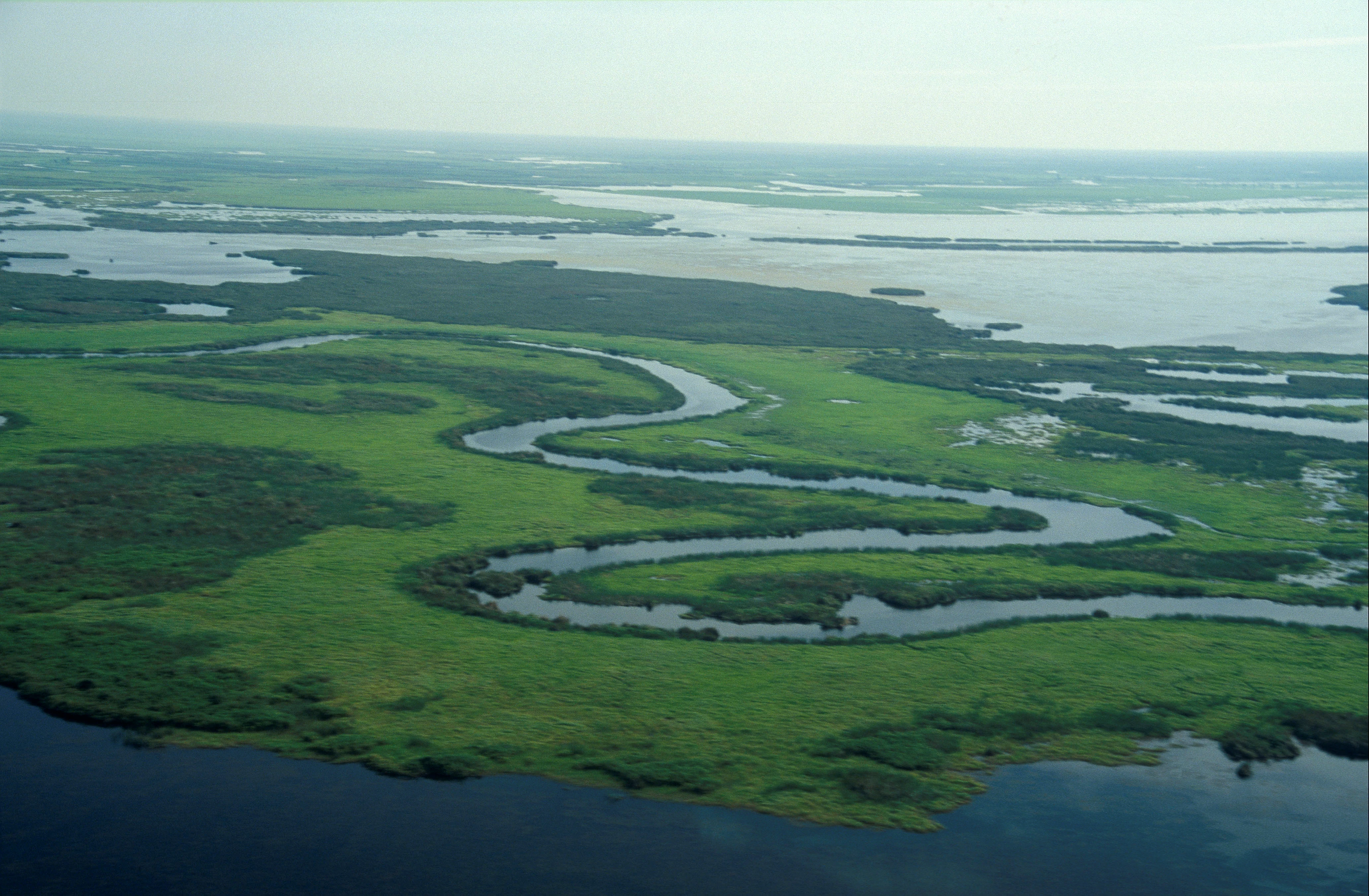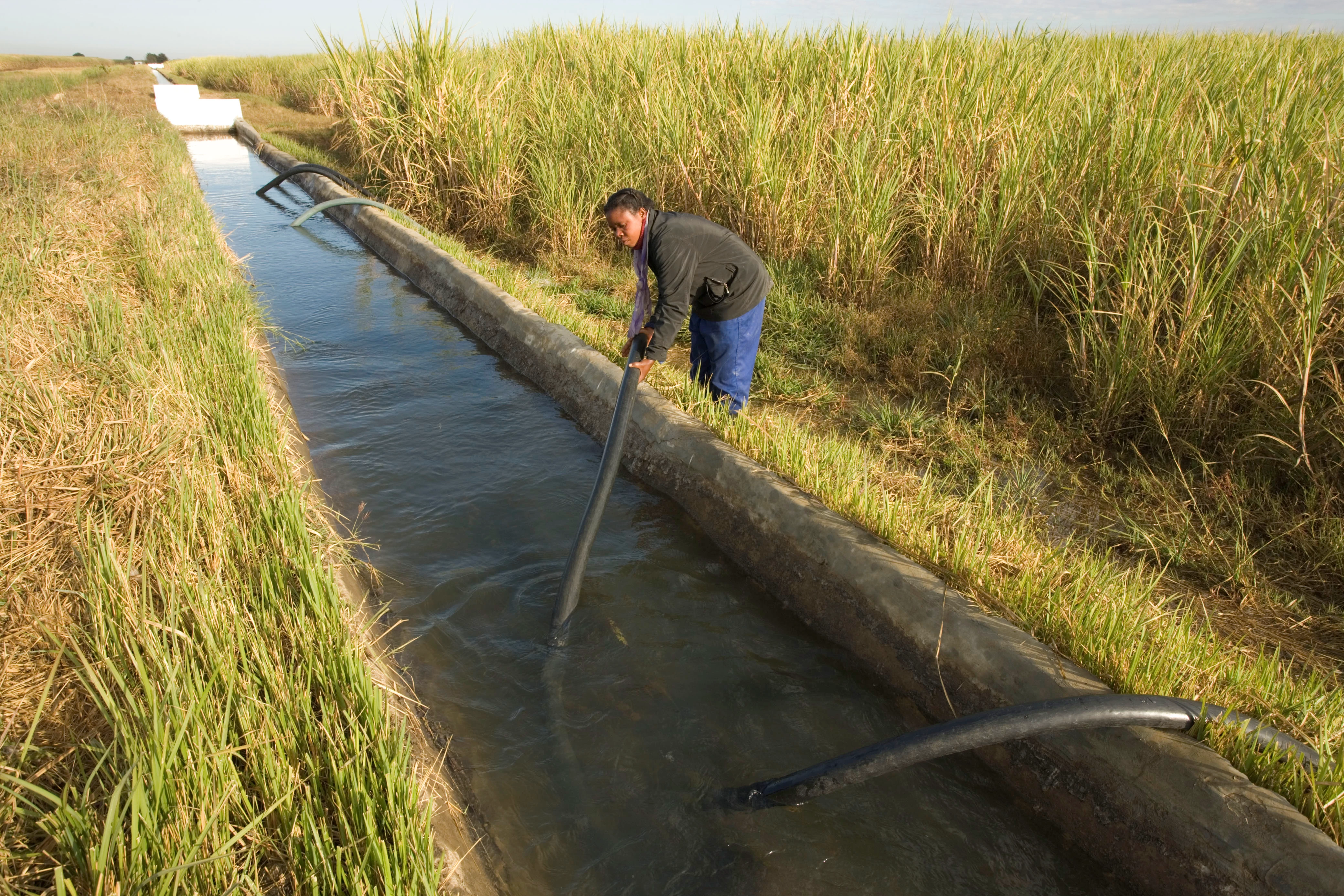DFCD partners with Zambian cane sugar grower to make its irrigation climate-smart
The Dutch Fund for Climate and Development (DFCD) has approved a €180,000 grant for KASCOL, Zambia’s oldest cooperative of sugar growers, to conduct the environmental, social and technical assessments to install drip irrigation.
The project has been put forward by the World Wide Fund for Nature Netherlands, which manages together with SNV Netherlands Development Organisation the DFCD’s Origination Facility to develop new projects for the investment fund.
KASCOL is located in the Kafue Flats, a 6,500 km² floodplain located in the southern region of Zambia. The DFCD identified this region as one of its ten focus landscapes, which is a unique aspect of the fund’s strategy.
It means that in this area the DFCD consortium adopts a ‘landscape’ strategy for deal origination and execution. This allows consortium parties to actively source and develop private sector investment opportunities in-and-around, in the vicinity of, as well as downstream from, their own investment activities.
The World Wide Fund for Nature Zambia has been working in the region for many years to ensure a sustainable development of the area for the people and nature. KASCOL, which has been part of WWF’s Kafue Flats Joint Action Group for years, has committed itself to work in line with the landscape approach for the region.
“Given the water pressures in the Kafue flats, WWF Zambia has been working closely with KASCOL to explore ways in which the business can reduce water risks through sustainable agriculture and water conservation practices,” Nachilala Nkombo, Country Director WWF Zambia said.
Kafue Flats powers Zambian economy
The densely-populated region is of major, industrial, ecological and socio-economic significance for Zambia. In all, the Kafue Flats wetland is estimated to directly support the livelihoods of more than 2 million people. The Kafue river also supports and sustains vital environmental systems like wetlands, national parks and bird sanctuaries. But over-abstraction of water and more severe droughts as a result of climate change are threatening this important economic region and ecosystem.
The Kafue Flats generate 50% of the country’s national hydroelectricity supply through the Kafue Gorge Dam and Itezhi-Tezhi Dam, and 44% of water used in Lusaka, the capital, is drawn from the Kafue river. The region is home to the country’s most productive fisheries and it has the highest concentration of cattle in the country with an estimated 20% of the national herd (290,000 cattle) grazing on the flats in the dry season.

World-leading producer of sugarcane
The floodplain is also the most efficient place in the world to grow sugar cane, Zambia’s most important cash crop generating 4% of its Gross Domestic Product. With yields averaging more than 120 tons of sugar cane per hectare, the country achieves the highest yields worldwide. Zambian producers are very competitive thanks to relatively low production costs even though transportation costs are high. Transport is expensive because of the long distance to the nearest port, but most demand for the sugar is local (40%) and regional. KASKOL sells its sugar cane to Zambia Sugar, which has a processing facility nearby.
KASCOL invests in drip irrigation to become climate-resilient
KASCOL is seeking to replace its current irrigation system of furrows by drip irrigation to make its sugar cane fields as resilient to climate change as possible. With the same amount of water, the company can water many more hectares. The cost/benefit of installing drip irrigation is high. The investment pays itself back in two years.
KASCOL wants to convert 300 hectares of its commercial fields in the next two years to drip irrigation. This requires a loan of up to €5 million from the DFCD. KASCOL starts with its commercial fields because they generate a higher yield. The smallholder farmers benefit through their shareholding in the Kaleya Smallholders Trust and the Mazabuka Sugar Cane Growers Trust.
To be eligible for a DFCD loan, KASCOL first has to conduct the necessary environmental, social and technical assessments. These studies are essential to understand the water availability in the region and how it can be best allocated. It also needs to develop the tender to select the installation company for the drip irrigation. The current DFCD origination grant will help co-fund these steps.
Keiron Brand, Regional Lead WWF DFCD Africa: “KASCOL has shown time and again that it provides a really good farmers outgrower model. The farmers earn more and have more economic security. Through this project, the farmers will become more resilient to the effect of climate change and unpredictable water availability. The company is a great partner to work with. It has a strong willingness to work with us and make decisions based on the environment and the benefits to farmers.”
Muimui Mufana, CEO of KASCOL: “Engaging in sustainable agricultural practices has been a key driver in KASCOL’s business model. Our participation in the WWF’s Kafue Flats Joint Action Group is a privilege and an opportunity for our farmers to participate in the preservation efforts of the wetlands. KASCOL is happy to partner with WWF DFCD in the environmental, social and technical assessment of our drip irrigation project proposal.” This is an example of how WWF partners with business to stop the degradation of the natural environment through green bankable projects that are financially, socially and environmentally sound.
Nachilala Nkombo, Country Director WWF Zambia: “Our work with KASCOL is an example of how WWF partners with business to stop the degradation of the natural environment through green bankable projects that are financially, socially and environmentally sound.”
Key impact metrics per year
- 70% reduction in water use per hectare through drip irrigation compared with furrows
- 10% increase in crop yield

Contact
For more information, Keiron Brand, Regional Lead DFCD Africa at kbrand@wwf.nl
In case you have any grievances in relation to this project of the DFCD’s Origination Facility, please contact us through our service desk at servicedesk@wwf.nl
About KASCOL
KASCOL, based in the north eastern part of the Kafue Flats, is one of Zambia’s major sugarcane growers and the oldest cooperative of sugar cane growers. It was founded in 1980 as part of a government initiative to include smallholders in the sugar cane industry. The four founding shareholders were Zambia Sugar Company, the Development Bank of Zambia, the Commonwealth Development Cooperation and Barclays Bank Zambia. In 2005, Kascol was fully privatized and the smallholders gained a 12.5% stake in the company.
The company manages 1,445 hectares of commercial sugar cane fields. The smallholder farmers manage 1,075 hectares for a combined total managed cane area of 2,520 hectares. The farmers benefit from this land through direct sugarcane sales and through the Kaleya Smallholders Farmers Trust and the Mazabuka Sugar Cane Growers Trust. There are 160 smallholders. They manage their farms - around 7 hectares per farmer of which 6.5 hectares is dedicated to sugar cane and 0.5 hectares to their dwellings and subsistence. KASCOL provides the general infrastructure for the smallholder fields such as the irrigation canals in addition to input and technical assistance.
About DFCD
The DFCD enables private sector investment in projects aimed at climate adaptation and mitigation in developing countries. The Dutch Ministry of Foreign Affairs has made available € 160 million to increase the resilience of communities and ecosystems most vulnerable to climate change. The DFCD is managed by a pioneering consortium of Climate Fund Managers (CFM), Worldwide Fund for Nature Netherlands (WWF-NL) and SNV, led by the Dutch Entrepreneurial Development Bank, FMO.

